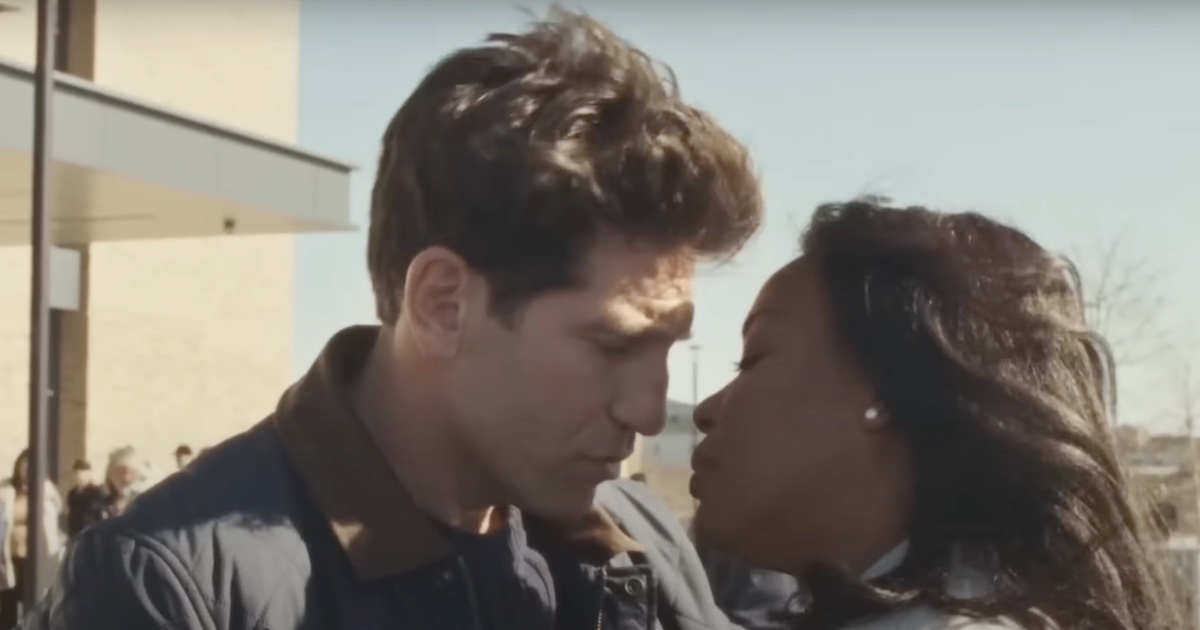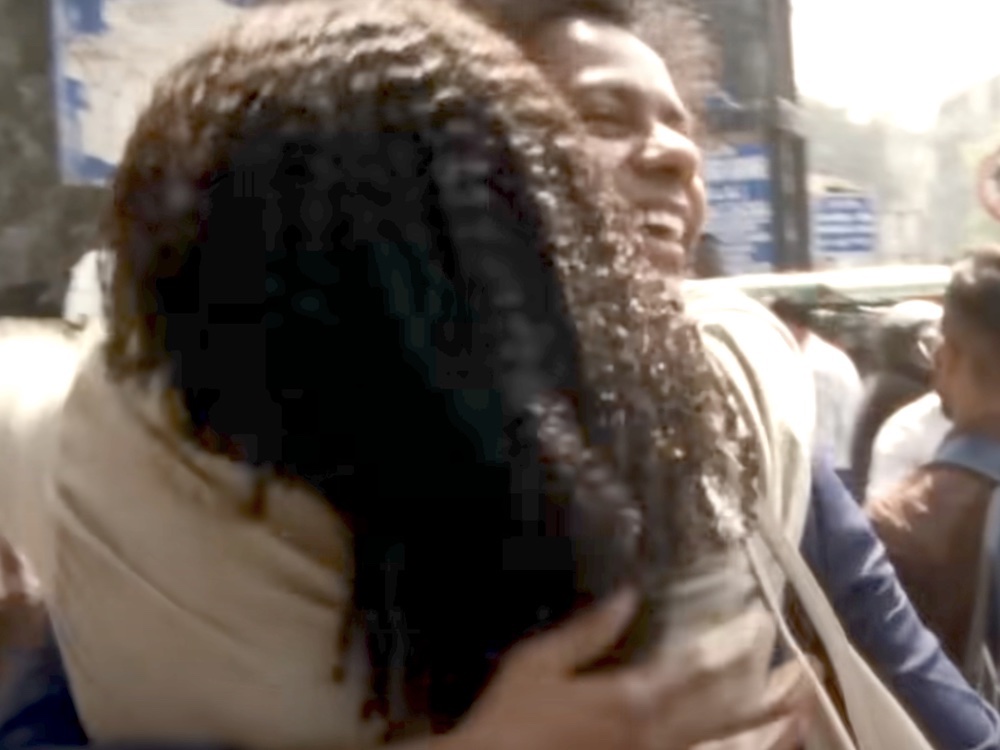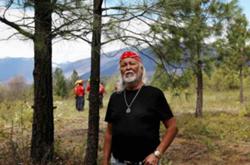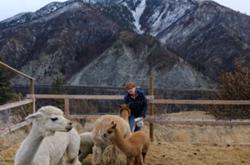Why do humans oppress other humans?
Isabel Wilkerson’s book Caste: The Origins of Our Discontents (2020) takes on this extremely large question and uncovers some startling information. Some of the book’s major ideas include why social stratification occurs, and how it is perpetuated, passed on and entrenched in societal structures — as well as more intimate ones.
Wilkerson, who was awarded a Pulitzer Prize for her work as a journalist, is the central figure in American director Ava DuVernay’s film Origin. DuVernay’s filmography spans both narrative and documentary. She is best known for her directorial work on the 2014 historical drama Selma, which tracks the Selma to Montgomery marches for African American voting rights in 1965; the 2016 documentary 13th, about the American prison system and its impacts on Black Americans; and the 2017 crime drama series When They See Us, which explores the lives of the Black and Latino men charged in the landmark 1989 “Central Park jogger” case.
Origin has been in theatres for a few weeks, and despite being eligible for major awards, precious little critical attention has been paid to it. This, in some ways, proves one of the central themes in the film: that in societies the world over, there are systems in place that value one group of people over another.
Wilkerson’s definition of “caste” is “the granting or withholding of respect, status, honor, attention, privileges, resources, benefit of the doubt, and human kindness to someone on the basis of their perceived rank or standing in the hierarchy.”
In the United States, this system has largely been organized around race. In countries like India, the caste system is determined by other criteria, such as profession and education. The greater the esteem of one’s role in society, the higher one is placed within it. But of course, it’s never quite that straightforward.
When fact blurs with fiction
Wilkerson first comes to the idea of caste when she is approached by her editor to write something about the murder of Trayvon Martin not long after the 17-year-old’s death in 2012. Initially she declined, citing the scale of grief around the killing, but the sudden death of her husband, Brett Hamilton, eventually spurred her to write her book. The film depicts some of Wilkerson and Hamilton’s final moments together: they argue about her decision not to write about Martin. It’s not only grief that sends her into a deep period of research, but also a series of unexpected discoveries that reveal connections between the history of the Holocaust in Nazi Germany, the treatment of Dalit people in India, and the U.S. slave trade.
American actor Aunjanue Ellis-Taylor plays Wilkerson in Origin. She is supported by a solid cast, including Jon Bernthal as her husband, Niecy Nash-Betts and Nick Offerman, but it is truly Ellis-Taylor’s film: she carries the weight of it upon her shoulders.
DuVernay’s decision to tell Wilkerson’s personal story as well as the central thesis of her book as a narrative feature is a curious choice. In the midst of watching the film, I kept thinking, “I wish this was a documentary.”
Invariably, when a feature film ends with a clip or image of the actual person, my first thought is that reality is almost always more interesting than fiction. Leaving that aside for a moment, the mixture of carefully argued ideas from the book alongside events drawn from the most intimate relationships in Wilkerson’s life makes for strange bedfellows. But the personal is political, especially when it comes down to how humans treat each other.
A grim history that fuels ongoing resistance
The film moves through history, drawing together landmark examples of caste-related repression through historical re-enactments.
It includes the story of August Landmesser and Irma Eckler, a couple who met and married during the rise of the Third Reich. Landmesser was believed to be the man in the centre of an infamous photo depicting a person refusing to give a Nazi salute, despite everyone else in the sizable crowd doing exactly that. When the couple attempted to leave the country, they were apprehended at the border. Both died in different internment camps in the Second World War.
The fate of Landmesser and Eckler, a Jewish couple, relates to Wilkerson’s thesis that bigotry is more than racism, though the two certainly have a great deal in common. Subjugation leads to extermination: the Nazis took lessons from the U.S. slave trade and the extermination of Indigenous people in North America in developing their legal approach to removing the rights of the Jewish population in Germany.
There are big stories in Origin like this, and smaller ones as well, such as that of Al Bright. Bright was an 11-year-old boy who was barred from the opportunity to celebrate with his teammates after winning a Little League city championship in Youngstown, Ohio, in 1951.
After their victory, the team went to a municipal pool, where Bright, the only Black child on the team, was denied entrance. The lifeguard forbade him from entering the pool; he had to sit outside on the lawn and watch his friends swim. Eventually, after parents argued at length with the pool management, the lifeguard cleared the pool of all other swimmers and towed the boy around on an inflatable raft for a few minutes, warning him not to touch the water lest the pool be drained and sanitized.
In the film, Wilkerson interviews Bright’s teammates, who are now elderly men. Despite the many decades that have passed since this event, they still react with profound shame and sadness about what happened.
Although Al Bright’s experience is hard to imagine in this day and age, racism in the United States continues, whether in voter suppression or police violence that hearkens back to the Jim Crow era in the southern states. To this point, the film re-creates the story of Allison Davis and his spouse, Elizabeth Stubbs Davis, two Black anthropologists who collaborated with another, white couple to write about segregation in America. Their book Deep South: A Social Anthropological Study of Caste and Class was published in 1941 and documented the treatment of Black communities in Depression-era Mississippi.
At the time, the Davises had to take extreme care to maintain their deep cover. Lynching and other kinds of racial violence were common. But the two couples worked closely together to gather material. In the film, the story of Deep South, told through another re-enactment, is as nerve-racking as you might imagine.
In her book, Wilkerson acknowledged the great debt that she owed to this landmark study of the Jim Crow era. Deep South introduced the idea of caste through the Black anthropologists’ empirical experience, derived from access to the local Black community, as well as the systems in place to reinforce strict racial divisions and power structures, from local government to landlords to the police.
It’s these larger systems that must shift if any changes to the endemic injustice can happen.

Specks of light
Although Wilkerson started writing before the 2016 U.S. election, she notes that the Donald Trump presidency very much informed her book. The embrace of Trump by people lower down in the social system is the very embodiment of her thesis: “Maintaining the caste system as it had always been was in their interest,” she writes in her book.
“And some were willing to accept short-term discomfort, forgo health insurance, risk contamination of the water and air and even die to protect their long-term interest in the hierarchy as they had known it.”
Is there any hope for humans in overcoming this apparently foundational need to create social hierarchies? That’s the big question that lingers.
Wilkerson is Black. Her late husband was white. Their love story offers one of the most concrete examples of what is possible. But it isn’t the only one. The film is filled with smaller moments of empathy. Those might not seem like much against the towering, successive waves of horror. But they shine like a light in darkness.
‘Origin’ is now screening in major theatres. ![]()
Read more: Books, Rights + Justice, Film

















Tyee Commenting Guidelines
Comments that violate guidelines risk being deleted, and violations may result in a temporary or permanent user ban. Maintain the spirit of good conversation to stay in the discussion and be patient with moderators. Comments are reviewed regularly but not in real time.
Do:
Do not: